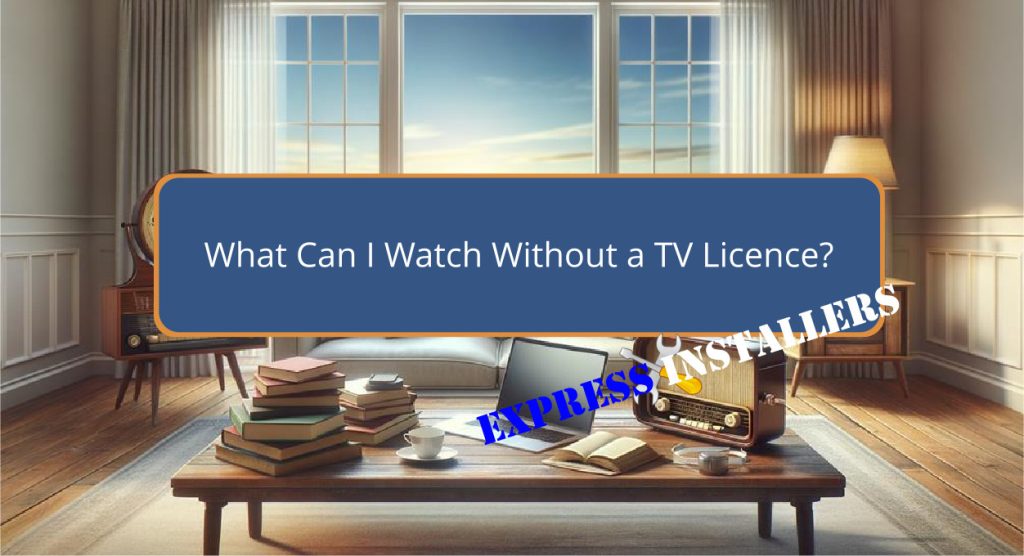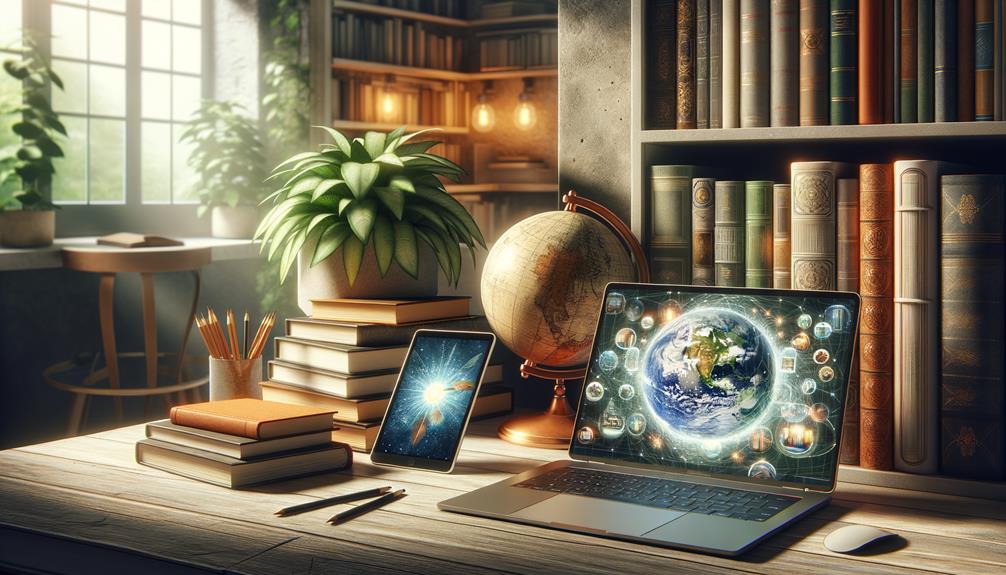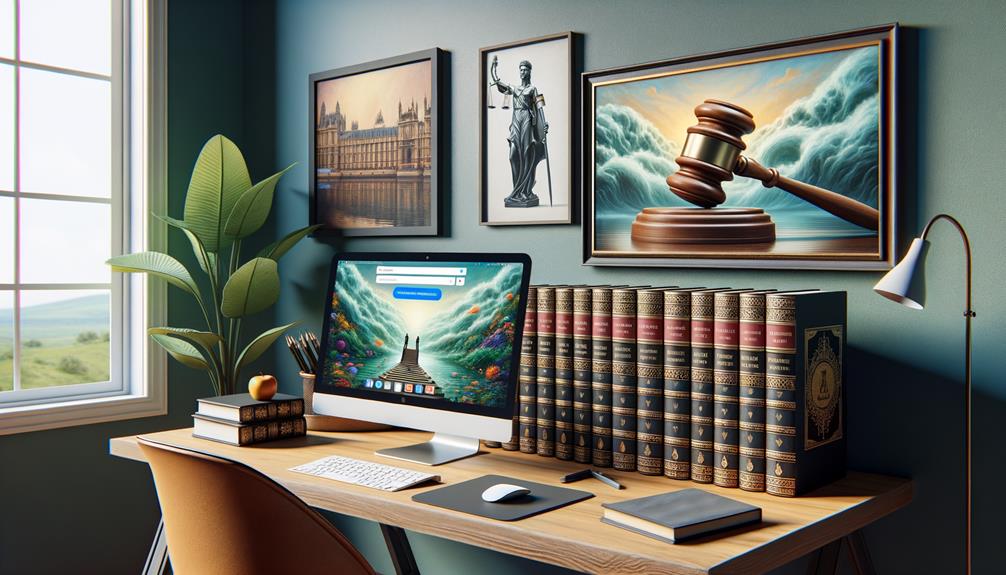
You can watch various content without a TV licence, providing it does not involve live television or BBC iPlayer.
On-demand streaming services, such as Netflix, Amazon Prime Video, and Disney+, are available without needing a licence.
Additionally, non-live elements like YouTube videos, DVDs, and Blu-rays are permissible.
Educational resources, including online courses and virtual museum tours, can be accessed freely. Pre-recorded sports content and documentaries are also licence-free.
Ensuring compliance with these guidelines maintains legality while enjoying diverse media content.
Further insights are available that could deepen your understanding of media consumption without a TV licence.
Quick Summary
- Stream movies and TV shows on platforms like Netflix, Amazon Prime, and Disney+ without a TV licence.
- Watch pre-recorded sports matches, highlights, and documentaries without needing a TV licence.
- Access educational content such as online courses, virtual museum tours, and academic webinars licence-free.
- Enjoy DVDs, Blu-rays, and other non-live media content without a TV licence.
- View videos on YouTube, including tutorials, vlogs, and music videos, without a TV licence requirement.
Understanding TV Licences
A TV licence is an obligatory requirement for watching live television and accessing BBC iPlayer in the United Kingdom.
Under TV licence regulations, any individual who watches or records live TV broadcasts on any channel, or uses BBC iPlayer, must have a valid TV licence.
This includes viewing documentaries live as they are aired or catching up on them through the BBC iPlayer platform.
The importance extends to all devices, including televisions, computers, tablets, mobile phones, or any device capable of receiving live television.
Failure to comply with these requirements can result in substantial fines.
It is essential for users to understand and adhere to these regulations to avoid legal repercussions while engaging with documentary content on these platforms.
On-Demand Streaming Options
Numerous on-demand streaming services, such as Netflix, Amazon Prime, and Disney+, allow viewers to enjoy a wide range of content without the necessity of a TV licence.
These platforms offer a diverse array of programming that includes films, series, documentaries, and exclusive content, all accessible without the legal requirement for a licence, provided users avoid any live streaming elements.
Key facts about these services include:
- Streaming platforms provide extensive libraries of on-demand content.
- Movie rentals are available without a TV licence through various digital services.
- Catch-up services like ITV Hub and All 4 do not require a TV licence.
- Viewing DVDs and Blu-rays is permissible as they are not considered live TV or streaming content.
Watching YouTube Legally

In the UK, viewing content on YouTube does not necessitate a TV licence.
YouTube regulations mandate that content creators adhere to copyright and community guidelines, ensuring a legal and respectful viewing environment.
This platform imposes certain viewing restrictions, including age limits on specific content, thereby protecting younger audiences from inappropriate material.
| Aspect | Details | Importance |
|---|---|---|
| Regulations | Adherence to guidelines | Legal compliance |
| Content | Diverse (vlogs, music, etc.) | Broad appeal |
| Restrictions | Age limits for certain videos | Viewer protection |
Viewers can enjoy a multitude of videos on various devices, maintaining legal viewing practices without the need for a traditional TV licence. This accessibility supports a dynamic and compliant user experience.
Accessing Non-Live Sports
Shifting attention to sports enthusiasts, it should be emphasised that viewing non-live sports, such as pre-recorded matches and sports documentaries, does not require a TV licence.
This exemption offers flexibility and convenience for fans to enjoy their favourite sports content at their leisure.
- Recorded Matches: Watch completed games at a time that suits you without the need for a live broadcast.
- Highlights: Catch up on the key moments from games and matches without the constraints of a live schedule.
- Sports Documentaries: Explore the histories, strategies, and personal stories of sports without a licence.
- Analysis Shows: Enhance your understanding of sports through expert analysis and commentary, accessible anytime on various platforms.
Educational Content Sources

A broad array of educational content, including online courses, virtual museum tours, and academic publications, can be accessed without the requirement of a TV licence.
Platforms such as Coursera and Udemy host a plethora of online courses across various subjects, while cultural institutions globally offer virtual tours that enhance learning without geographical constraints.
Additionally, websites like OpenLearn and YouTube present free documentaries that cover a wide range of topics, from science to humanities.
Webinars, another significant resource, provide real-time learning opportunities from experts and academics without any licensing prerequisites.
For in-depth study, numerous academic journals, research papers, and e-books are readily available online, ensuring that educational resources are both expansive and accessible.
TV Licence Exemptions
Understanding TV licence exemptions is essential for those who primarily engage with on-demand services like Netflix, Amazon Prime, and All 4, as these platforms do not require a TV licence.
Awareness of TV licence alternatives and exempt activities is vital to guarantee legal compliance.
- On-demand services: Viewing content on platforms like Netflix, Amazon Prime, or All 4 does not require a TV licence.
- Non-BBC catch-up TV: Services like ITV Hub and My5 are exempt from TV licence requirements for catch-up content.
- Pre-recorded content: Watching pre-recorded videos or series online doesn’t necessitate a TV licence.
- BBC iPlayer: This is an exception where a TV licence is mandatory, even for catch-up viewing.
Legal Considerations

While on-demand services like Netflix and Amazon Prime do not require a TV licence, it is imperative to consider the legal ramifications of accessing other types of content without proper authorisation.
For instance, watching live broadcasts or using BBC iPlayer without a TV licence is unlawful.
It is essential to make sure that your usage of any streaming service complies with legal requirements to avoid penalties.
| Platform | Requires TV Licence | Content Type |
|---|---|---|
| BBC iPlayer | Yes | Live and Catch-up |
| Netflix | No | Non live entertainment |
| Amazon Prime | No | Non live entertainment |
| All 4 | No | On-demand |
| Live TV (general) | Yes | Live Broadcasts |
Understanding these distinctions helps in manoeuvring the complex landscape of legal streaming platforms while enjoying various forms of entertainment.
Frequently Asked Questions
What Can I Legally Watch on TV Without a Licence?
Legally, without a TV licence, you can watch YouTube content and online tutorials, as well as on-demand services such as Netflix and Amazon Prime, which do not require live broadcast viewing.
Can I Cancel My TV Licence if I Only Watch Netflix?
Yes, you can cancel your TV licence if you only watch Netflix, as it does not require a licence. Review subscription considerations and follow the official cancellation process to guarantee compliance with regulations.
Can They Tell if You Watch TV Without a Licence?
TV Licensing utilises license detection methods such as vans and handheld detectors, facing enforcement challenges in accurately identifying unlicensed TV viewing due to the sheer volume of potential violators and limitations in technology.
Do I Need a TV Licence to Watch Freeview?
To watch live broadcasts on Freeview, a TV licence is required. However, licence exceptions apply for viewing on-demand content through Freeview alternatives, where you can access numerous channels without needing a licence.
Conclusion
To sum up, individuals who seek to view visual content without a TV licence have several legal avenues available. These include:
- Utilising on-demand streaming services
- Accessing platforms like YouTube
- Exploring educational resources
Moreover, specific exemptions from the TV licence requirement provide additional opportunities for consumption.
Adhering to these guidelines guarantees compliance with legal standards while still enjoying a broad spectrum of media.
